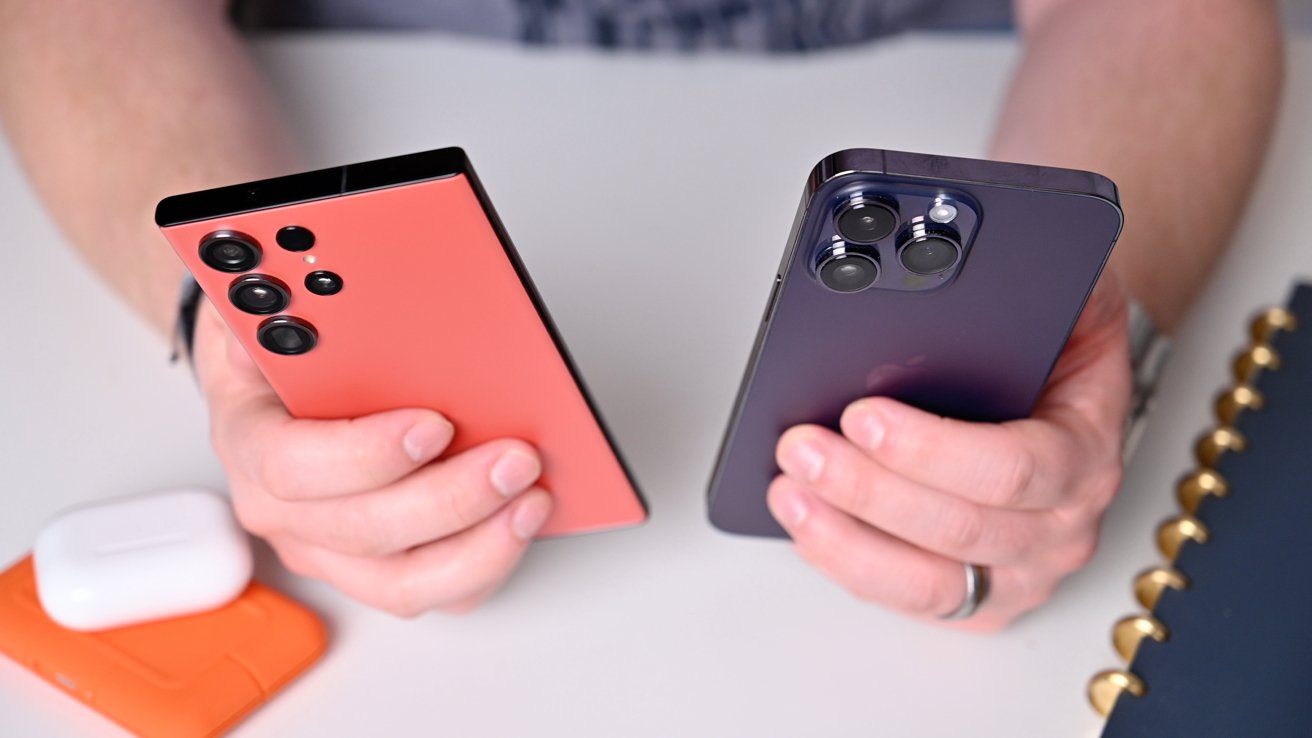Hi guys! I know why you are all here. You are interested in tech, right? Well, in today’s blog, we are going to discuss it. Since you are here, I assume you know about Android and iOS. For those who don’t know, let me explain what Android and iOS are.
Basically, Android and iOS are operating systems—a software/UI (User Interface) we use on our smartphones. You may have heard of Apple, a company that manufactures smartphones and other tech products. iOS was created by Apple. Google is the company that created Android. There has been a big debate over the last few years between Android and iOS users. Both operating systems have their good and bad sides.
You see, Android smartphones have a large market share because they cover almost every category of smartphones, including folding phones, flip phones, and the world’s smallest phones. On the other hand, Apple doesn’t have as much market share, but its marketing is still strong. The debate between Android and iOS is not easy to resolve. Both of them are performing well in their respective areas. I personally prefer to take a side in this debate with Android. I have experience with both, and I really prefer Android over iOS for several reasons.
I will divide the discussion into a few categories to help you understand better. (Note: I am comparing an Android phone in a similar price range to Apple devices, such as Samsung Galaxy S series smartphones.)
1. Customization
I am really excited to talk about this. Customization is important because everyone has their own style. Android offers more customization options. If you want to customize your UI on Android, there are many options like launchers and icon packs. There are several renowned launchers available for Android. iOS does not provide the same level of customization. Even though iOS 18 introduced a feature to place apps anywhere you want, Android had this feature from the beginning.
Furthermore, the app library on Android is much better than on iOS. I’m not going to lie; the app library in iOS is simply less useful. On Android, when you swipe out, the app library opens, which is helpful and easy to use. In iOS, the app library is difficult to navigate because you need to remember the category of the app you are searching for. This can be quite frustrating, and as a result, many people don’t use the app library on iOS. Speaking of apps, the Android Play Store has more apps than the App Store. Yes, I know there are many apps that can be fraudulent, but there are many useful ones as well.
If you install an app, it’s because you know about it and plan to use it for some time. If the app you are looking for isn’t available, how can you use the feature? It’s not that Apple’s App Store lacks apps; it generally has everything you need for daily life. However, those who want extensive customization will find fewer resources on iOS
2.UI interface
A well-organized interface is really helpful for a better experience. In the case of Apple, the interface is not bad. It’s improved with iOS 18, making it better now. However, I want to credit Android because many of the features iOS is introducing now were first available on Android. Features like placing apps anywhere you want were present on Android first. Essentially, Apple is trying to keep up with the modern, customization-friendly world. It’s nice, but I’m not saying that Apple is doing anything wrong.
In Android, the control panel is a useful feature. It’s easy to understand and can be customized as you wish. The control panel in iOS is not bad but isn’t the best. It cannot be changed according to your needs. When it comes to the notification panel, Android has the best one. Everyone knows that the notification panel in iOS is not great. Android has a “History” button that shows every notification, even if you accidentally remove some. In iOS, this is not as straightforward. iOS lacks some functionalities in this regard .

3. Root facility
Android phones can be rooted, which comes with both risks and benefits. On the positive side, rooting allows users to customize their devices extensively, alter the interface, and install apps that require elevated permissions. This can lead to enhanced functionality, improved performance, and access to features otherwise restricted by the manufacturer or carrier. Additionally, rooting can enable users to remove bloatware and optimize battery life.
However, rooting can void the device’s warranty, making it difficult to get manufacturer support. Rooted phones are also more vulnerable to security threats, as the elevated access can be exploited by malicious software. Moreover, improper rooting or installing incompatible software can lead to system instability or even render the device inoperable. Let’s not discuss iPhones, as they do not support rooting.
4. Security
Security is a major concern. It may seem like I am being partial, but I am not. iOS often restricts features for security reasons. On the other hand, Android includes many features while also addressing security concerns. For example, Samsung offers Knox security, which is effective and widely recognized.
Conclusion
In this discussion, the point was not necessarily to show which is better but to provide insight into both operating systems. They both excel in their own ways. It’s up to you to decide which platform offers the advantages or working space you need. I’ve just shared my personal opinions. That’s all for today. I’m signing off now. Bye, everyone!



